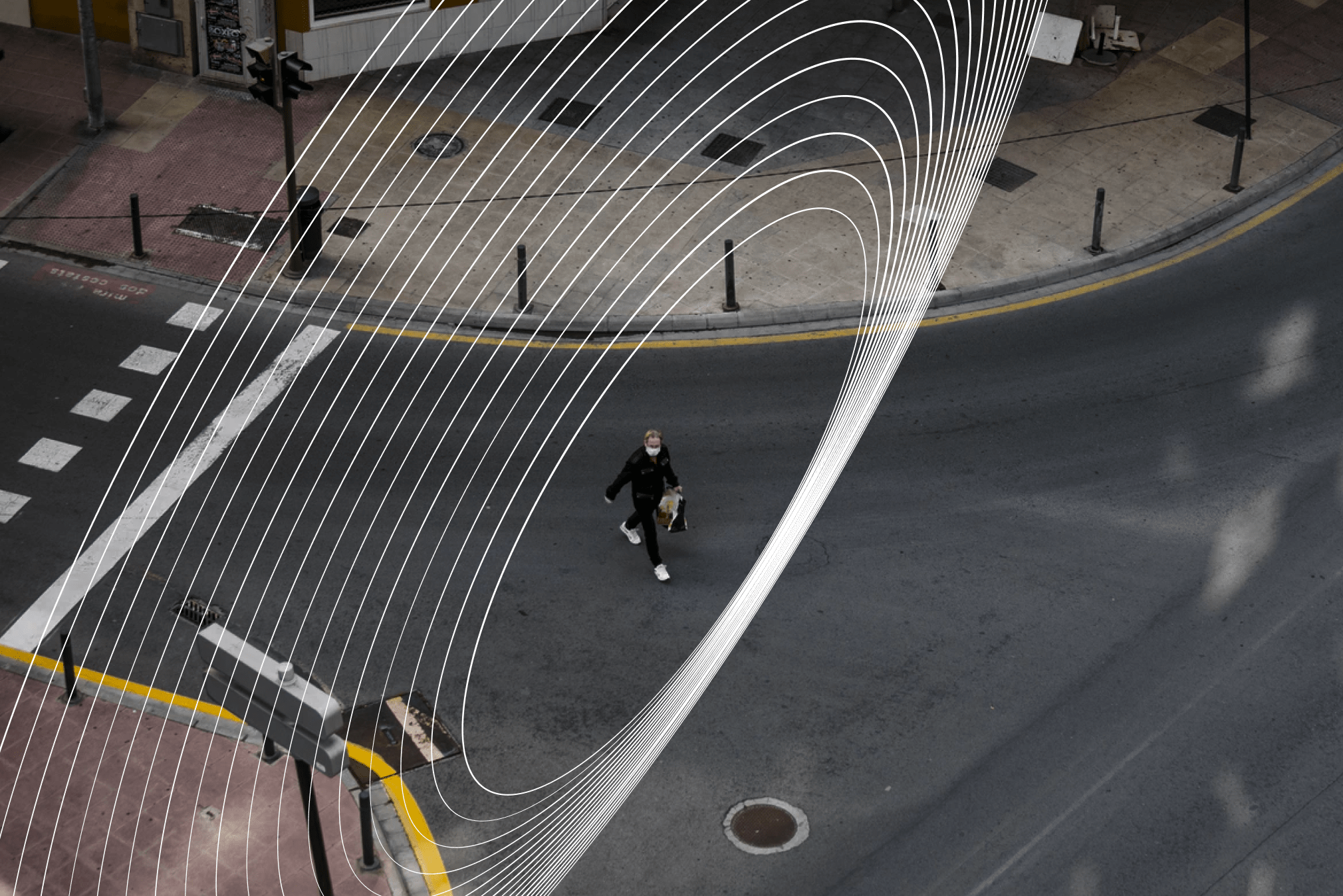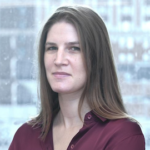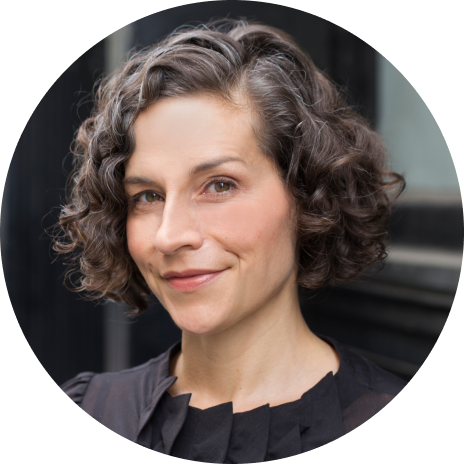Now is the time to consider the future of work, health, and equity.
In recent years, Luminary Labs has hosted a series of events we call Lab Sessions, inviting our network and selected experts to explore topics ranging from artificial intelligence and voice technology to open data and the space economy.
Of course, the world looks different in 2020. We won’t be hosting an in-person event this summer, but we have more questions than ever. We decided to convene a panel of pragmatic futurists — virtually and asynchronously — to simulate a roundtable discussion.
We asked these futurists to weigh in on what has surprised them (or not surprised them at all) this year and what leaders should be considering as they make plans for the next year or two. Times of disruption and uncertainty can be frustrating, but offer opportunities to question norms and change what’s not working. A pragmatic futurist has a distinctive read on what’s to come — but is probably forming multiple contingency plans. The experts we consulted reminded us that the future is not fixed; we collectively have the power to shape it with thoughtful decisions and sustainable actions.
Meet the futurists
Ifeoma Ajunwa, J.D., Ph.D., is an Associate Professor at Cornell University, a Faculty Associate at the Berkman Klein Center at Harvard Law School, and an Affiliate of Cornell’s Center for the Study of Inequality. Dr. Ajunwa’s research interests are at the intersection of law and technology, with a particular focus on the ethical governance of workplace technologies, as well as diversity and inclusion in the labor market and the workplace.
Martha Gimbel is the Senior Manager of Economic Research at Schmidt Futures, a philanthropic initiative founded by Eric and Wendy Schmidt. She was previously the Research Director for Indeed.com’s Hiring Lab, the Research Director and Senior Economist at the Joint Economic Committee on Capitol Hill, and a senior policy advisor to the Secretary of Labor.
Steve Downs is a co-founder at Building H, a project to build health into everyday life, and the former Chief Technology and Strategy Officer at Robert Wood Johnson Foundation. His work focuses on the intersection of technology, health, and everyday life. With his co-founder and collaborators, Steve is reimagining how we eat, sleep, get from place to place, socialize and entertain ourselves to be healthy by design.
Theodora Lau is a speaker, writer, advisor, and the founder of Unconventional Ventures, which connects founders to funders, provides mentorship to entrepreneurs, advises a broad set of corporates, and broadens opportunities for diversity. She regularly advises startups in financial services and healthcare/caregiving spaces.
Vanessa Mason is Research Director at the Institute for the Future, a nonprofit organization that helps individuals, organizations, and communities think systematically about the future. Her futures research explores how we can redesign and reimagine well-being and belonging changing across business, social, and civic spheres. She also writes the Future of Belonging newsletter.
Long-term thinking and planning
Martha:
Companies are facing a terrifying number of transition points right now. Shutting down, reopening, re-closing, opening again, etc. Companies need to be thinking about how they can remain nimble while still preparing themselves to take advantage of the rebound when the public health crisis is resolved.
Theodora:
I am surprised at how ill-prepared we are as a country in dealing with the crisis. We had 2-3 months’ head start compared with Asia; I wish we had used that time to plan ahead.
Vanessa:
Leaders will be caught off guard by the need to deploy long-term thinking across the organization to ensure survival. Too many organizations make decisions to optimize for this quarter or this year without regard for the long-term consequences. … It might surprise people that futurists need to be excellent historians, as one of the best ways to imagine a future is by understanding the history that has brought your organization to the present.
Steve:
Given that we are learning about the human experience with COVID-19 in real time, there is uncertainty about the longer term health impacts of having been infected by it. To that end, we need to do the scenario planning to assess both the societal impact (and needed responses) of a scenario where a significant proportion of those infected develop chronic health problems. Creating a disease registry and the scientific infrastructure to track the experience longitudinally would be a start. (To be clear, I’m not basing this concern on any knowledge of the likelihood of long-term effects, only on the uncertainty.)
Ifeoma:
Companies should be thinking about long-term changes. Instead of merely reacting to the COVID-19 crisis, business leaders should be making detailed plans for all future contingencies. The future of work demands visionary leadership that doesn’t just respond to what currently is happening but that is always alert and planning for what could come next.
New ways of working: Collaboration, flexibility, agility
Vanessa:
Leaders may feel an extreme burden to have all of the answers but should be aware that strategic foresight or futures thinking is intended to be a collaborative and iterative process. It’s easy to make plans that can live on a figurative shelf. It’s much harder to be decisive and act, even in the face of obstacles. Moving to more shared, participatory decision making and planning may feel risky, but ultimately, leaders need to leverage the creativity of everyone they work with to navigate the complex challenges ahead.
Theodora:
For the short term, leaders need to focus on managing the employee experience and customer expectations. Employees are a key part of any successful business. Where will they work, and how do they work? How can they enable employees to work effectively and collaborate virtually? Will some employees need to return to the office, and if so, how can it be done safely? Most importantly, how can leaders create a flexible work environment that caters to each employee’s unique needs?
Ifeoma:
What lessons have we learned from the COVID-19 about how much “face time” is actually necessary for our company, and how flexible we can be in allowing our workers to work remotely? How can we leverage the new reality of work from home for cost savings while maintaining quality service and employee work/life balance?
Martha:
Leaders really need to be rethinking whether “trade-offs” they’ve traditionally accepted as gospel really exist. For instance, workers are often thought of as a cost to the organization. What are the ways in which better supporting your workers actually improves your bottom line?
Systemic vulnerability and structural inequity
Steve:
The COVID-19 pandemic has exposed multiple structural vulnerabilities and systemic failures of our society. … We have an economic system that has been nothing short of brilliant in bringing Americans modern conveniences and technological marvels … but has produced compounding negative consequences for racial equity, for the safety of our planet, and for the health of our population. We have valued theory over practice. We have valued ideology over results. We live in a time when highly profitable products contribute to inequity, a warming climate, and worsening health. With the absence of political leadership to tackle these long-term challenges, business leaders will need to step up, step out from the excuse that the system makes them do it, and start aligning their products with equity and with sustainability of the planet and the humans that inhabit it.
Vanessa:
People should be thinking more about the legacy of racial inequity and white supremacy within their own fields and organizations. It’s wonderful that so many organizations released statements of support and donated financially. However, systemic issues require systemic solutions. Mellody Hobson outlined the 3 Ps framework of People, Purchasing, and Philanthropy … Rather than one-time, singular actions, organizations need to invest in their People across the organization from the top to the bottom, shift their Purchasing to minority-owned business, and practice consistent, regular Philanthropy to disrupt the systems that perpetuate systemic racism. It’s easy for companies to focus on Philanthropy while not focusing on internal issues of People and Purchasing. More companies should be planning how to make these internal changes.
Ifeoma:
The past year has brought with it two epidemics: the COVID-19 epidemic, and also the epidemic of racial violence against Black Americans at the hands of law enforcement. Both epidemics have revealed long-standing civil and economic disparities for Black Americans. Organizations will have to grapple with how to foster not just diverse hiring but also full inclusion in their workplaces. This includes taking a closer look at which racial groups are not adequately represented among the board of directors and in the C-Suite. The COVID-19 crisis also affords an opportunity to think about alternative work arrangements and how a more nimble and flexible organization might help recruit and retain diverse talent.
Economic uncertainty
Theodora:
There is a lot of uncertainty in the business world, regardless of geography and sector. In the technology world, the tension and decoupling between China and the U.S. is concerning. The economic fallout from COVID-19 and recession, along with the election, will play a crucial role in what organizations need to consider in the next few years.
It is time to think more seriously about agility and business continuity. For startups in particular, it is a time to pause and evaluate their strategies and business models — and to ensure there is enough cash flow to sustain a period of uncertainty.
Martha:
I’ve been surprised by the overly positive thinking among business leaders about what the rest of the year holds. The United States is a consumer-driven economy, and if people cannot consume, our economy is going to be struggling for a long time to come.
Hiring, skills, and lifelong learning
Theodora:
I wish organizations (public and private sectors) would spend more time and resources on reskilling and upskilling — not just on people who are working, but also for those who are unemployed or at the risk of losing their jobs. With or without the health crisis, the world is changing around us. So we can either choose to be rendered irrelevant, or we can innovate and change.
Same goes for individuals. We need to shed the traditional three-stages approach to life — education, work, and retirement — for multistage lives, where we could learn at different stages of our lives and rethink the concept of retirement.
Martha:
Organizations have been unhappy with their hiring processes for years, but there hasn’t been wholesale innovation in the hiring space. The organizations that are first to find a good way to hire that’s truly based on people’s skills and not people’s credentials will be able to outcompete those that are still hiring in outmoded ways.
On a hopeful note: the potential for change
Vanessa:
All of us have become futurists in some sense. People have started to realize that they have the ability and desire to imagine and build a world much different than the one they lived in six months ago.
Steve:
Moments of truth around values come quickly. In recent years and months, climate change, economic inequality, gender inequality, and racial inequality have forced companies into reactive mode, scrambling to address issues which will require years of authentic substantive work to respond adequately. Health — and the impact of company products on health — could be next.
Ifeoma:
I have been absolutely amazed as to how quickly all workers in various organizations adjusted to the “new normal” during the pandemic and have been able to maintain a high level of productivity. This truly shows the resilience of the human spirit. I have also been pleasantly surprised by the creativity and adaptability of several organizations in the face of COVID-19 crisis.
Vanessa:
The outpouring of generosity and charity from mutual aid has not surprised me. Most people are good and care about others, despite what we see from the current federal leadership.
Theodora:
I am not surprised at how co-dependent we have become as a society, globally. I think we are more interconnected than we have ever been — and together, we can thrive.
The Lab Report helps executives make sense of emerging trends and new opportunities. Sign up for the newsletter, and we’ll send insights straight to your inbox.








